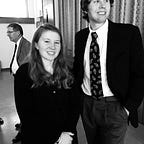How Psilocybin Mushrooms can treat Obsessive Compulsive Disorder (OCD)
How Psilocybin Mushrooms can treat Obsessive Compulsive Disorder (OCD)
Psilocybin has shown promising results in treating the symptoms of obsessive compulsive disorder. The substance responsible for psychedelic mushrooms has long been a homeopathic treatment. Yet, adoption of psilocybin by western medicine has been slow. Only over the last two decades has there been research into its potential, with promising results. Psilocybin has shown potential for addressing symptoms and even causes of OCD.
Can Psilocybin therapy treat OCD?
Psilocybin has shown potential in diminishing symptoms of OCD by way of decreasing negative emotions. Research from this year has shown psilocybin targets the same areas of the brain OCD afflicts. The paper describes psilocybin treatment increasing positive emotions and decreasing negative emotions. These effects lasted for a month post-treatment. Psilocybin operates by connecting to a part of our brain called a receptor, custom shaped to absorb the hormone serotonin. Serotonin plays a key role in mood, cognitive function, appetite, pain, and memory. Psilocybin mimics the hormone, binding to the receptor. Psilocybin alters the behavior of these receptors, facilitating absorption of serotonin.
This increases emotions and emotional responses. This is in stark contrast to OCD medications, which operate by blocking serotonin absorption. Many OCD medication users report feeling “emotional bluntness”, or “emotional avoidance” from use.
Psilocybin can also alter connections between areas of the brain. Psilocybin treatments have decreased inter-cortex communication between the front and back brain regions. The area of the brain responsible for obsessive thoughts is the Default Mode Network (DMN). Psilocybin’s connection-altering qualities offer potential for disrupting the DMN, diminishing OCD’s obsessiveness symptoms.
Additionally, OCD is often caused by trauma and abuse, especially in childhood. Psilocybin has shown promising results in treating PTSD. This may be an alternative way of addressing OCD.
Comedian Adam Strauss, who wrote The Mushroom Cure, a play about treating his OCD with psilocybin, said this about his experience:
Additionally, Reddit certainly can vouch for psilocybin’s efficacy in helping OCD symptoms, anecdotal they may be.
Psilocybin clinical trials treating OCD
The first clinical study of OCD with psilocybin was conducted from 2001 to 2004 and was published by the University of Arizona in 2006. 10 adults without comorbidities (additional disorders to OCD) were administered psilocybin. The subjects’ symptoms were rated on established OCD rating scales. Improvement in all OCD symptoms in all patients was observed after 24 hours up to 6 months post-treatment. The results suggested dosage did not correlate with diminishment of symptoms. The University of Arizona team responsible for that study is following it up with a study this year to be published 2021. This study will use 15 subjects, and will compare high and low doses of psilocybin to Lorazepam, an anti-anxiety medication.
Another ongoing study is at Yale University, using 30 participants, will be published 2022. Half of the participants will be administered psilocybin, the other half a placebo.
Psilocybin OCD psychedelic-assisted psychotherapy
Psilocybin mushrooms have been used in healing ceremonies as far back as 10,000 BC, suggested by depictions in cave paintings. Contemporary Native indigenous societies still use psychedelics, psilocybin among them, in healing ceremonies. Psilocybin use thus traditionally has not been in solitude.
All research into the effects of psilocybin on OCD take place within therapeutic programs. Any pharmacological effects are amplified when part of a larger therapeutic program.
The future of Psilocybin Mushrooms and OCD
The future of treatment of OCD with psilocybin rests largely in the hand of legislators. Legal restrictions block easy access to psilocybin compounds. This inhibits research into OCD and psilocybin, of which is scant, and future research is needed. The mechanisms of psilocybin are still largely unknown, and there are many variables left to explore (i.e. dosage, therapy). Additionally, Psilocybin has had positive effects on depression, a frequent comorbidity of OCD, which may offer an alternative method of treating it, as discussed in our next post.
